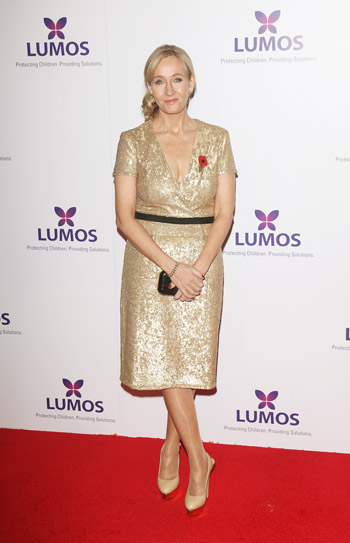-
Courses

Courses
Choosing a course is one of the most important decisions you'll ever make! View our courses and see what our students and lecturers have to say about the courses you are interested in at the links below.
-
University Life

University Life
Each year more than 4,000 choose University of Galway as their University of choice. Find out what life at University of Galway is all about here.
-
About University of Galway

About University of Galway
Since 1845, University of Galway has been sharing the highest quality teaching and research with Ireland and the world. Find out what makes our University so special – from our distinguished history to the latest news and campus developments.
-
Colleges & Schools

Colleges & Schools
University of Galway has earned international recognition as a research-led university with a commitment to top quality teaching across a range of key areas of expertise.
-
Research & Innovation

Research & Innovation
University of Galway’s vibrant research community take on some of the most pressing challenges of our times.
-
Business & Industry

Guiding Breakthrough Research at University of Galway
We explore and facilitate commercial opportunities for the research community at University of Galway, as well as facilitating industry partnership.
-
Alumni & Friends

Alumni & Friends
There are 128,000 University of Galway alumni worldwide. Stay connected to your alumni community! Join our social networks and update your details online.
-
Community Engagement

Community Engagement
At University of Galway, we believe that the best learning takes place when you apply what you learn in a real world context. That's why many of our courses include work placements or community projects.
Hope for Orphans
J.K. Rowling’s organisation, Lumos, and the UNESCO Child and Family Research Centre hope to transform the lives of eight million children
 |
| J.K. Rowling at a Lumos fundraiser |
A new research partnership between J.K. Rowling’s international children’s organisation Lumos and NUI Galway will increase global momentum on transforming the lives of children who are separated from their families and live in orphanages.
Research carried out by the UNESCO Child and Family Research Centre (CFRC) at NUI Galway, expects to increase global understanding of why an estimated eight million children worldwide live in institutions and orphanages in different regions of the world, despite the fact that as many as 80% of those children still have living parents. The research will evaluate methods of deinstitutionalisation, and investigate the best ways to offer support to families allowing them to stay together.
Lumos, founded in 2005 by J.K. Rowling after the writer read about the plight of children in caged beds, has an impressive record. In the last four years, under CEO Georgette Mulheir’s leadership, the organisation has helped provide support to over 14,000 children, moving them from institutions to safe and caring family environments. Lumos has also trained 23,000 social workers, medical professionals, teachers, carers and policy makers and helped redirect €367 million that was planned to be spent on orphanages and institutions, and ensured the funding was spent on community-based services instead.
Mulheir is one of the most influential social workers in the world. She has dedicated her life to closing down orphanages across Central and Eastern Europe, mostly in Moldova, Bulgaria, Czech Republic, Haiti and Russia, where many disabled children are left tied all day in filthy cots. In the worst cases, many institutions are used by paedophile rings to traffic children. Mulheir said: “Our mission is to help eight million children in institutions by promoting large-scale reform through our influence on governments and major international aid donors. We need compelling evidence to achieve the greatest impact. We are delighted to work with NUI Galway, which will bring world-leading independent academic rigour to our programmes, as well as an understanding of what works in practice to gain the best outcomes for children.”
Thanks to a generous grant from Atlantic Philanthropies, the partnership will start its activities by establishing links and learning opportunities between Irish examples of best practice, much of it also supported by Atlantic Philanthropies, and governments and practitioners in countries in the process of reforming systems of care and protection of children.
Eighty years of scientific research has shown that children are best raised in families. Many children who grow up in institutional care and are deprived of the close, sustained adult engagement they receive in a family, suffering a negative impact on their physical, intellectual and emotional development. The European Union, the US Government and a number of international aid donors are committed to ending institutionalisation.
The UNESCO Chair Professor Pat Dolan, NUI Galway, will work with UNESCO Chair Professor Mark Brennan at Pennsylvania State University on the Lumos project.
Professor Dolan said: “The prospect of completing usable real-world research that helps to end the institutionalisation of children and youth globally, will be particularly fitting not only for UNESCO, and our research centre in NUI Galway, but for Ireland as a country given its sad and horrific past track record in relation to children in large orphanages.”
Lumos is dedicated to ending the institutionalisation of children worldwide by 2050. The non-profit organisation has a track record in demonstrating that most children can be reunited with families given the right support. Meanwhile, the UNESCO Child and Family Research Centre at NUI Galway is at the forefront of research, education and training in family support and youth development. It is the hub of an international network of universities, centres of excellence and agencies in the children and youth field. Aileen Shaw, Manager of Strategic Development at the UNESCO Child and Family Research Centre, explained: “The Child and Family Research Centre is at the start of a long term relationship with Lumos. The research posts have been identified and we expect to have an official launch of this project early in 2016. Our priority is to ensure the protection of children improves in all countries and we are here to provide solutions.”















